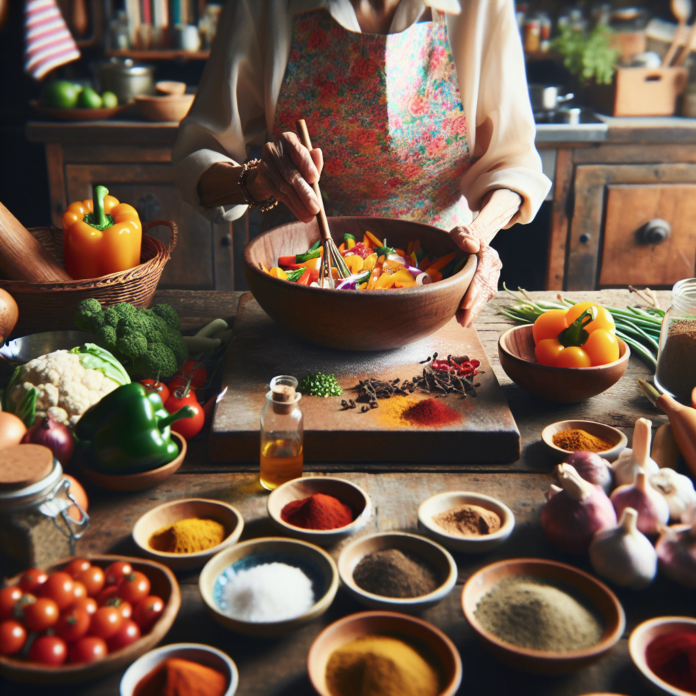Experiments and creativity in the kitchen have given the culinary world an array of flavors that tingle the taste buds. But there is always something special about trying something new for the very first time. Whether you’re a seasoned professional or a novice home cook, creating new flavors can be an intriguing and satisfying endeavor.
Creating new flavors is more than just mixing and matching ingredients at random. It is an art learned over time and requires an understanding of different cuisines, a willingness to experiment, and the ability to taste and adjust. Always bear in mind that becoming a good home cook is like being a scientist. Analyzing, experimenting, and refining are part of the game. It also requires patience and flexibility.
Understanding the Flavor Wheel
The flavor wheel, also known as the palate, is an important tool in the culinary world. It is used to describe the flavors we experience when we eat. It includes five basic tastes: sweet, salty, sour, bitter, and umami. Understanding these flavors and how they interact with each other is fundamental to developing delicious and innovative recipes. For instance, sweet and salty complement each other in sweet and savory dishes, while sour and salty are a classic combination in many Asian cuisines.
Leverage on Your Palette
Being a good cook is synonymous with a good taster. Tasting is a crucial part of cooking. As you cook, take a moment to taste your dishes periodically. This helps you identify the flavors that are dominating and those that need more input. The ingredients in your dish are not static. Their dynamics change as they interact with heat and each other. As usual, you start with a recipe, but your palate will help you make the necessary tweaks to make the dish your own.
A good way to enhance your tasting skills is by keeping a tasting journal. Note down what you taste and the aftertastes. This will help create a flavor memory that you can always refer to when cooking.
Experimenting with Ingredients
Don’t be afraid to experiment with various ingredients. A new ingredient can offer a totally new perspective on a dish you’ve been preparing for years. Spices, herbs, fruits, vegetables, and different types of meat can all bring something unique to the table.
Essentially, creating new flavors is a game of balance. The key is to find a balance that works for you and your audience. For instance, if a recipe is too sweet, a pinch of salt or some lemon juice might make it more palatable. If it’s too sour or bitter, adding a bit of sugar might do the trick.
Mastering Techniques
Different cooking techniques can profoundly impact your dishes. Techniques such as roasting, grilling, sautéing, poaching, and marinating not only influence the texture of a dish but also the flavor. For example, caramelization or the Maillard reaction are two processes that occur during roasting or grilling, leading to enhanced flavors and a darker color.
Also, it’s important to note that your cooking tool contributes to the flavor of the dish. For example, food cooked in clay pots has a distinct flavor compared to those cooked in stainless steel pots. Discovering these nuances will help you further refine your cooking skills and dishes.
Conclusion
Crafting new flavors is an adventure that any cooking enthusiast should take. It offers an avenue for creativity, learning, and expression. On this journey, you’ll make mistakes, but they are part of the process. Remember to trust your taste buds, experiment widely, and enjoy the process of creating new flavors in your kitchen.
Frequently Asked Questions
Q: How can I get better at pairing flavors?
A: Start by understanding the basic tastes, and over time, try different combinations while noting down the results. Don’t be afraid to experiment.
Q: What are some useful techniques for creating new flavors?
A: There are so many techniques, but some that standout include roasting to bring out natural sweetness, using herbs and spices, or employing acidity to add some zing to dishes.
Q: How can I enhance my tasting skills?
A: Try a wide range of foods, practice mindful eating, and keep a tasting journal. Over time, your palate will become more refined.

